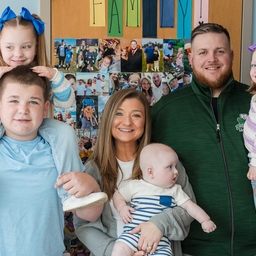Children’s Hospital of Philadelphia Researchers Find Promising Preclinical Data for Expanding Use of Drug for Primary Mitochondrial Diseases
Aug 19, 2025
Researchers found that a new drug therapy currently in clinical trials for a form of primary mitochondrial disease – Mitochondrial Encephalomyopathy, Lactic Acidosis, and Stroke-like episodes (MELAS) syndrome – was safe and effective in multiple preclinical zebrafish models.
